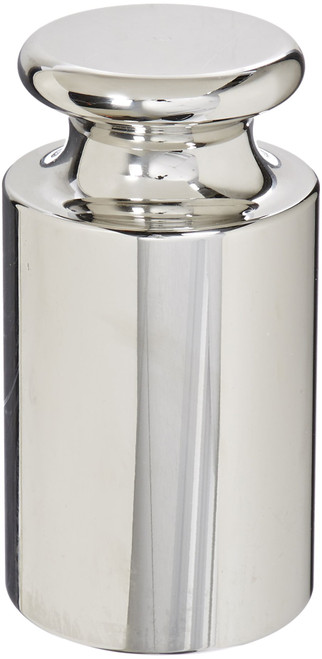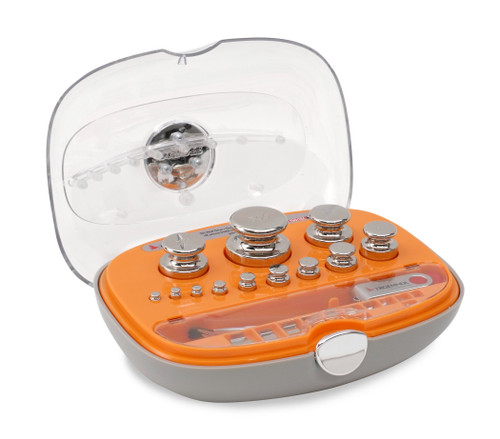Brand: Ohaus
Features:
- Metric, OIML Class F1 calibration weight for calibrating other weights, or electronic balances and scales
- Stainless steel construction for stability, resistance to corrosion, and low magnetic susceptibility
- Meets International Organization of Legal Metrology (OIML) R111 specifications for weights in Class F1 for use calibrating high-precision top loading balances with a readability as low as 0.01g to 0.001g
- Optional NVLAP certificate ensures precision and traceability
Ohaus
Details:
The Ohaus metric, stainless steel calibration weight meets International Organization of Legal Metrology (OIML) Class F1 specifications and designed for calibrating other weights, or electronic balances and scales. The weight is constructed of stainless steel for stability, resistance to corrosion, and low magnetic susceptibility. The weight meets OIML R111 Class F1 specifications for use calibrating high-precision top loading balances with a readability as low as 0.01g to 0.001g.
The National Voluntary Laboratory Accreditation Program (NVLAP) accredits laboratories for compliance with ISO/IEC 17025 on the basis of their ability to meet the technical requirements set forth in NIST Handbook 150-2, and can provide accreditation to ANSI/NCSL Z540-1-1994. NVLAP calibrations and certifications meet all ISO, , GMP, GLP, DOD, ANSI/NCSL Z540-1 and Nuclear requirements and are traceable to NIST. Procedures and processes used to generate this multi-page certificate, as well as its format and content, are prescribed by NVLAP. The document contains customer name & address, date of calibration, equipment and standards used in the calibration, accuracy class, true mass value (mass in a vacuum), As Found mass correction (for recalibration), As Left mass correction, uncertainty of measurement process (uncertainty to tolerance ratios are guaranteed), environmental conditions during test, construction and density of the weight, calibration procedure, and a statement of traceability to NIST. Mutual recognition arrangements include The International Laboratory Accreditation Cooperation (ILAC), The Asia Pacific Laboratory Accreditation Cooperation (APLAC) and The National Cooperation for Laboratory Accreditation (NACLA).
Calibration weights are used to measure the weight or mass of an object using a balance or scale, or to calibrate other weights or instruments. Calibration weights can be certified or uncertified. Certified weights meet strict guid







